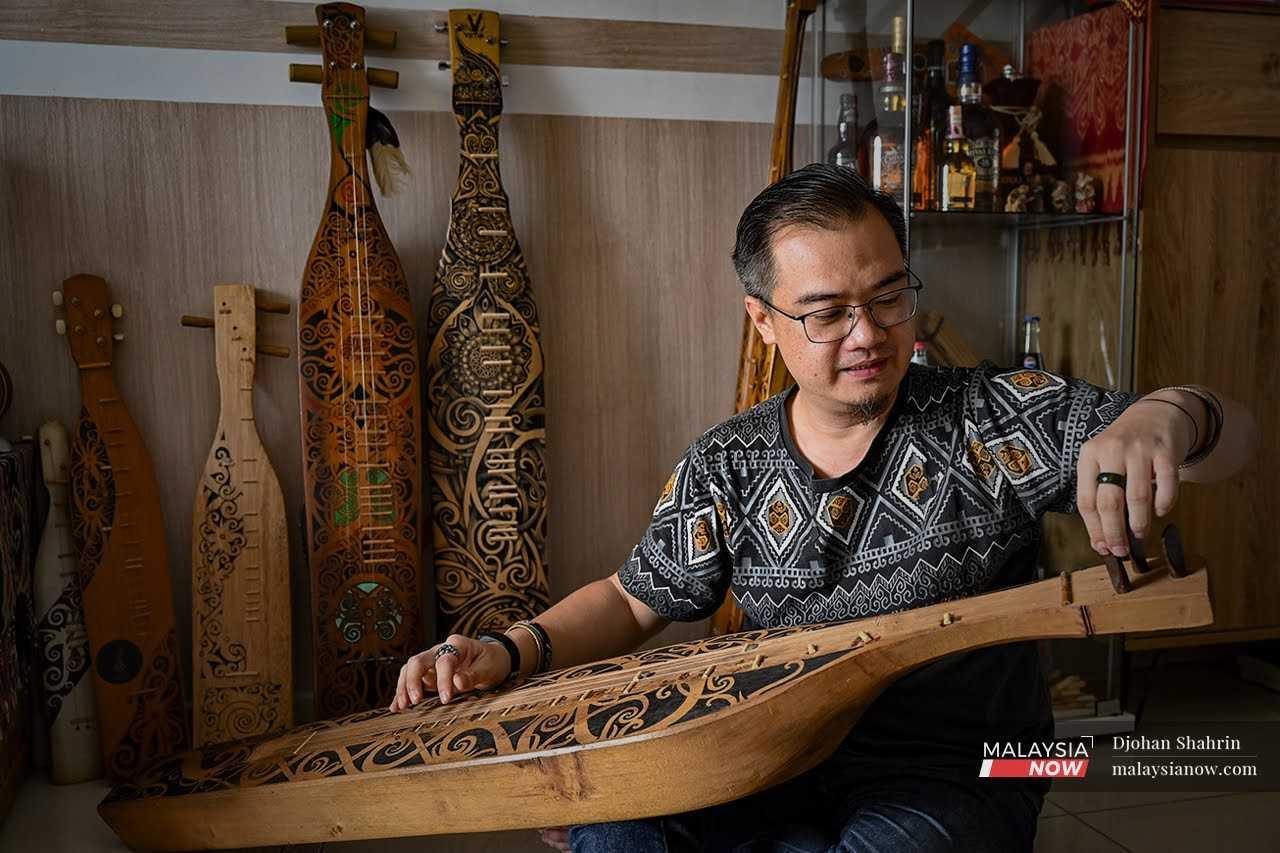From playing the guitar in church to playing the sape to the world
Anderson Kalang recalls the start of his sape career and his journey to where he is today.
Just In
Professional sape player Anderson Kalang recalls the day more than 20 years ago when his young cousin came to stay with his family during the school break.
At that point, Anderson, a guitarist, was a regular member of his church music team. His cousin, who loved to watch him perform, asked Anderson to teach him how to play the guitar as well.
"Sure, but you must have your own guitar," Anderson told him.
"Can't I use yours?" his cousin asked.
"No. My guitar is my guitar, your guitar is your guitar," Anderson said.
Anderson's cousin, Hezekiah Asim, proved to be an able student and quickly mastered what he was taught. After a while, though, Anderson realised that it had been a while since Hezekiah last sat down to practise.
"What's up?" he asked. "Why aren't you playing your guitar anymore?"
"It's okay," Hezekiah replied. "I think I prefer to play the sape now. I find it more interesting."
Two decades later, Anderson was still regularly playing the guitar at church and giving performances on the side.
But he had also long been interested in cultural arts, including the ulu dance – a traditional dance for certain ethnic groups in the Sarawak interior.
"When we dance, we dance to the music of the sape," Anderson explained.
Intrigued, it became his turn to go to his cousin and ask for music lessons.
That was seven years ago. Today, Anderson is a professional player, known within the sape community.
"Meanwhile, my guitar has been sitting here gathering dust," he joked in a recent interview with MalaysiaNow.
First steps
The sape is a traditional lute played by the Kenyah and Kayan communities in Sarawak. Carved from a single piece of wood, some of them can reach over a metre in length.
Anderson, who was born and raised in Miri, had been playing the sape for six months when he was asked to perform for the first time alongside his cousin at the Borneo Christian Music Festival.
For Anderson, this was the start of his journey to explore his potential in mastering this new instrument.
After the performance, he returned to his home in Kuala Lumpur where he began meeting with other sape players throughout the Klang Valley.
"We started to develop a community, and we built up a network with one another," he said.
This was what set the sape community in Kuala Lumpur apart from the rest, he said.
"The Malaysian sape community as a whole was very quiet," he said. "Everyone did their own thing and worked alone, trying to showcase their individuality.
"But we in Kuala Lumpur wanted to work together, and to make the sape more than just an instrument – we wanted to make it an art, to raise awareness about our culture in Borneo."
Since taking up the sape, Anderson has participated in various performances at the national and even international level, including auditioning in 2016 for the "Asia's Got Talent" programme alongside his friend, Saufi Aiman, who died last year.
He was also one of the musicians for the "Keluarga Malaysia" theme song during the administration of former prime minister Ismail Sabri Yaakob.
In March, he became one of 257 musicians who set a new record in the Malaysia Book of Records for the largest gathering of sape players, in conjunction with the closing of the Citrawarna Keluarga Malaysia 2022 programme.
In his studio at home, he edits sape music, incorporating it into other genres like jazz, rock and electronic dance music.
He owns six sapes in total, four of which have strong sentimental value including his "workhorse" sape which he uses in performances and competitions.
There is also his first sape ever, custom-made for him by renowned sape maker Mat Linggi.
When asked for the backstory of this sape, Anderson threw back his head and laughed.
"I asked Hezekiah to teach me how to play the sape. He said, 'Sure, but you must have your own sape.'
"And I thought to myself – 'I've heard this phrase before.'"
Subscribe to our newsletter
To be updated with all the latest news and analyses daily.
